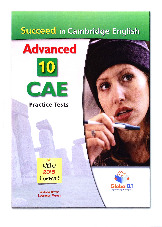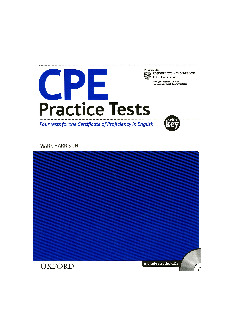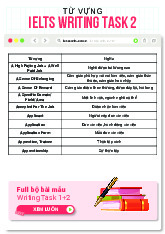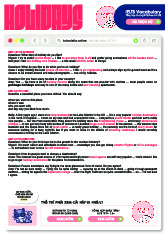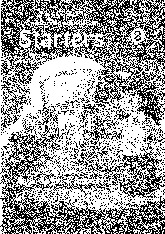





Preview text:
lOMoAR cPSD| 58562220 UNIT 3 - GRAMMAR I.
SPECULATING AND PREDICTING 1. Will/ won’t
- We use will / won't to make predictions.
Ex: We'll send people to Mars in the near future.
Liverpool won't win the Champions League this year.
- We can use phrases with will / won't to make the predictions stronger or weaker. I
think / I don't think / I doubt / I'm not sure + S + will (but not won't) Ex: I don't think
she'll come to the party. → NOT I think she won't...
I doubt she'll come to the party. → NOT I doubt she won't...
I'm certain / I'm sure + will / won't
Ex: I'm certain she'll come to the party.
I'm sure she won't come to the party.
- We can also use adverbs such as probably and definitely with will and won't.
Ex: She'll definitely come to the party.
She probably won't come to the party. 2. May/ Might/ Could
- We use may / might / could + the infinitive without talking about future possibilities. Ex:
My phone may / might / could be in my bedroom.
- We use may not / might not for the negative, to say that it is possible that something will not
happen. We don't use could not.
Ex: My phone may not / might not be in my bedroom. → NOT … could not be in my bedroom
Phân biệt can could may might: - Can: Dùng
ể diễn tả khả năng hiện tại hoặc tương lai của một người hoặc sự vật – cũng
như ể xin phép hoặc yêu cầu cách trực tiếp. Ex: I can swim/ Can I use your phone?
- Could (QKhu của can): Dùng
ể diễn tả khả năng quá khứ của một người/ sự vật, ể
xin phép hoặc yêu cầu một cách lịch sự hơn can, hoặc ể ề nghị/ gợi ý một iều gì ó.
Ex: When I was younger, I could run very fast.
Could you please pass the salt?/ We could go to the cinema tonight.
- May: Dùng ể diễn tả khả năng xảy ra của một sự việc trong hiện tại hoặc tương lai – cũng
như khi cần xin phép/ cho phép với sắc thái trang trọng hơn can.
Ex: It may rain tomorrow. / May I have a glass of water? / You may leave now.
- Might: Dùng ể diễn tả khả năng xảy ra của một sự việc trong hiện tại hoặc tương lai, nhưng
ít chắc chắn hơn may. Bên cạnh ó, might cũng sử dụng ể xin phép hoặc cho phép một cách lịch sự.
Ex: It might rain later, so bring an umbrella.
Might I ask you a question?/ You might want to check your email. lOMoAR cPSD| 58562220
Không sử dụng might khi muốn nói về một sự việc rất có thể xảy ra hoặc ã xảy ra trong quá
khứ. (Ex: He might be at home now. → NOT He might be at home yesterday.)
Dạng phủ ịnh của can could may might:
Khi ở dạng phủ ịnh, can could may might có ý nghĩa khá khác biệt với nhau – cụ thể như sau:
- Can not/ could not => chắc chắn là không (Ex: It can/ could not rain tomorrow)
- May not/ might not => có thể là không (Ex: It may/ might not rain tomorrow) EXERCISES: 1. Online
3. Điền can/ could/ may/ might thích hợp vào chỗ trống:
1 I have a sore throat, so I ___ not be able to sing at the concert tonight.
2 She said she ___ help us with the project if she has some free time.
3 ___ you please pass me the salt?
4 When I was a child, I ___ swim for hours without getting tired.
5 If you don’t hurry, you ___ miss the bus.
4. Complete the sentences with will / may / might / could (not) and the verbs below. Sometimes
more than one answer may be possible. be close go out hurt like win
1 The doctor isn’t completely sure, but he thinks that my leg ………………………… broken.
2 I don’t think our team ………………………… today because our best player is injured.
3 I’m not sure if you should watch this horror film. You ………………………… it.
4 He’s quite anxious about his operation, although the doctor has said it …………………… at all.
5 I haven’t decided yet, but I ………………………… tonight. I’ve got a lot of homework.
6 There are rumours that they ………………………… our local hospital. Very few people use it.
5. Rewrite the sentence so that it has a similar meaning using the words in brackets. 1
I doubt scientists will find a cure for cancer in the near future. (probably) → lOMoAR cPSD| 58562220
2 I’m certain that doctors won’t find a cure for the common cold. (definitely) →
3 It’s possible that millions of people will get ill from the flu virus this winter. (may) →
4 I’m sure bio-printing of organs will become a reality. (definitely) →
5 I’m fairly sure people will be healthier in the future. (probably) → II. THE FIRST CONDITIONAL Mệnh ề if Mệnh ề chính Example
If + S + V (present simple), S + will + V If my baby sister isn’t hungry, she will not cry. Cách dùng
Dùng ể dự oán một hành ộng, sự việc có
If I get up early, I’ll go to work on time.
thể xảy ra ở hiện tại hoặc tương lai
Dùng ể ề nghị hoặc gợi ý
I’ll take you to school if you buy me an ice cream.
Dùng ể cảnh báo hoặc e dọa
If you don’t do your homework, you will be penalized by the teacher. Lưu ý:
- Trong nhiều trường hợp, will có thể ược thay thế bằng một số
ộng từ khuyết thiếu khác
(might/ may/ could nhưng không chắn chắn bằng will).
- Nếu mệnh ề if ứng trước mệnh ề chính, chúng ta cần dùng dấu phẩy ngăn cách 2 mệnh ề -
Nếu mệnh ề chính ứng trước mệnh ề if thì chúng mình không cần dùng dấu phẩy.
- unless = if not. → Unless + S + V = If + S + am/ is/ are/ do/ does + not + V
Ex: You’ll fail in French if you don’t study harder. → You’ll fail in French unless you study harder.
- Đôi khi câu iều kiện loại 1 có thể sử dụng thì hiện tại ơn ở cả 2 mệnh ề Ex: If I want to play
chess, please play with me.
Đảo ngữ câu iều kiện loại 1: If + S + V, S + will + V → Should + S + V-inf, S + will + V
Ex: If my brother has free time, he will read comic books. → Should my brother have free time, he will read comic books. EXERCISES:
1. Complete the first conditional sentences with the verbs below. Use the present simple
form and will / won’t + base form. be be
not be able to cut down die out find get get rid of live protect rise not use
1 If scientists …………………… cures for most diseases, people…………..……… much longer. lOMoAR cPSD| 58562220
2 If the climate ………………………… warmer, sea levels …………………………
3 Many endangered species ………………………… if we don’t ………………………… them.
4 We ………………………… stop climate change if we ………………………… less fossil fuels.
5 If we ………………………… the rainforests, there ………………………… more carbon dioxide in the atmosphere.
6 If we ………………………… nuclear weapons, I think the world ………………………… a much safer place. 2.
3. Chia ộng từ trong ngoặc ể hoàn thành câu
1. If you ………... (be) scared of snakes, ………………….… (go) into the garden.
2. If the temperature is 100 Celsius degrees, the water ……………………….… (boil).
3. They……….… (accept) our conditions, if you ………....… (meet) them at that restaurant.
4. Take some cake, if you ………….… (be) hungry.
5. We should visit her if we ……………… (be) here. lOMoAR cPSD| 58562220 4. III.
FUTURE CONTINUOUS AND FUTURE PERFECT
THÌ TƯƠNG LAI TIẾP DIỄN
THÌ TƯƠNG LAI HOÀN THÀNH
1. Công thức chung: S + will + be + V-ing
1. Công thức chung: S+will+have+p.p
Ex: Will you be waiting for her when her plane Ex: arrives tonight?
The film will already have startedby the time we get to the cinema. 2. Chức năng 2. Chức năng - Diễn ạt một hành ộng ang xảy ra -
Diễn ạt một hành ộng sẽ hoàn thành tại một thời iểm xác ịnh trong tương trước một hành
ộng khác trong tương lai Ex: lai Ex: -
She will have finished writing the report -
I will be sending in my application
before 8 - They will have completed the building
tomorrow - Next week at this time, you will be
by the end of this year lying on the beach -
Signal words (dấu hiệu nhận biết) -
Signal words (dấu hiệu nhận biết):
● by + thời gian trong tương lai
● at this time/ at this moment + thời gian
● by the end of + thời gian trong tương lai
trong tương lai: Vào thời iểm này …. ● by the time …
● At + giờ cụ thể + thời gian trong tương lai:
● before + thời gian trong tương lai Ex: By vào lúc …..
the end of this month I will have taken an English Ex: course.
At this time tomorrow, I will be going shopping in Singapore.
● At present next Friday, at 5 p.m tomorrow... EXERCISES: lOMoAR cPSD| 58562220 1. Online
2. Choose the correct words to complete the sentences.
1 By the time I go on holiday, I’ll have save / be saving plenty of spending money.
2 Could you call back in half an hour? I expect I’ll be finishing / have finished lunch by then.
3 Tomorrow, we’ll be studying / have studied Australia.
4 I won’t be playing / have played in the football match this Saturday as I’ll be on my way to Spain.
5 What will you be doing / have done at 7 p.m. tomorrow?
3. Complete the text with the future continuous, future perfect or future perfect
continuous form of the verbs in brackets.
It started life above a pizza shop in the USA, but the world’s most visited travel website,
TripAdvisor, 1……………………….. (run) for over fifteen years by the end of this month. This
year, millions of us 2……………………….. (read) the online reviews and using them to help us
plan our holidays. The most reviewed city is London – very soon, reviewers 3…………………..
(post) over two million reviews and 4……………………….. (give) the city’s attractions a rating out
of five ‘bubbles’. Astonishingly, the website 5……………………….. (receive) reviews for so long
that very soon, the total number of words published ………………….. (approach) 12,000 times the
number of words in the complete works of Shakespeare!
4. Complete the mini-dialogues with the correct form of the verbs in brackets.
1 A Does Frank know about the party? Can I mention it to him?
B Wait until this afternoon. I’ll …………………………. (speak) to him by then.
2 A Have you heard from Mia recently?
B No, but I …………………………. (meet) her tomorrow. 3 A Where shall we stop?
B At the next town. We …………………………. (travel) for three hours by then.
4 A Are you going dancing tonight?
B Probably not. My grandparents …………………………. (visit) later.
5 A Are you ready for Thursday’s test?
B I hope so. I …………………………. (revise) for a week by then!
